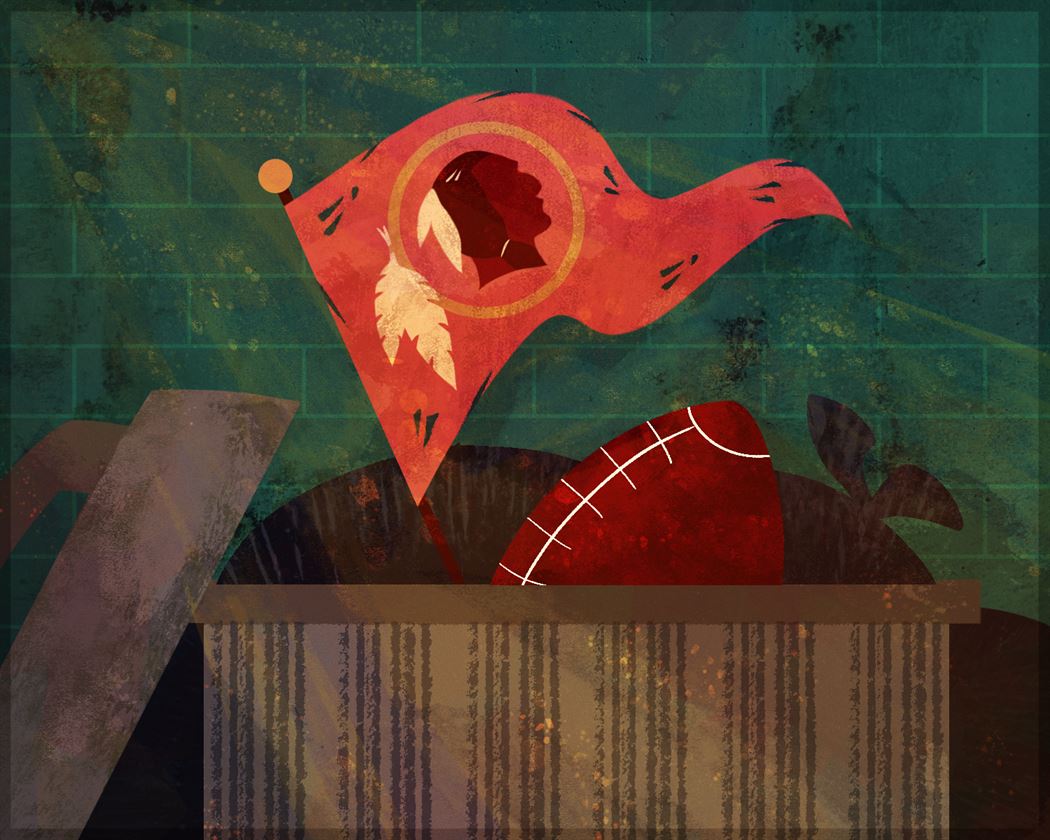Amid the increased conversation on race in America, and the many tribulations people of color continue to face in this country, the National Football League’s Washington Redskins announced they will be changing the name and logo of their franchise following a thorough review.
With the Washington Redskins announcing this change, it is just one team down, and many more to go taking steps toward change.
Native American symbolism in American sports is no short list. While names like “Redskins” are objectively offensive, some team names like the Atlanta Braves or Chicago Blackhawks can be seen as honoring Native American culture as formidable, stoic and cool.
Our very own Montclair State University is not absent of this problematic history either. We were known as the “Montclair State Indians” until August of 1989.
Our school’s logo included a Native American profile and sports teams had the Cleveland Indians’s “Chief Wahoo” stitched onto them, including that of the 1987 NCAA Division III National Champion baseball team.
While the Montclair State Athletic Department made the morally correct decision to change its name to “Red Hawks,” a certainly bold decision to make at the time, it remains important to recognize these dark foundations of our school and strive to educate one another and keep our ears and minds open to criticism.
The argument that Native American nicknames and logos are used to honor the culture is often attributed to the Kansas City Chiefs, but the origin of the reigning Super Bowl champions’ nickname is no homage, but just the opposite, in fact. Kansas City named their football team the “Chiefs” after a white man, Harold Roe Bartle, who impersonated Native American culture.
The idea of these team names and logos honoring Native American culture is deeply flawed. The predominately white fan base of the Chiefs attend games wearing headdresses. Each home game is opened with a cheerleader riding a horse named “Warpaint,” along with the banging of a giant Native-style drum with the Chiefs logo printed on it.
Vincent Schilling, the journalist who uncovered the unsettling origin of the Chiefs’ namesake, reflected on these rituals during an appearance on CNN.
Schilling told CNN his grandmother, a Mohawk woman, was stolen away to a boarding school as a child and, out of fear, never spoke a word of Mohawk afterward.
“My grandma couldn’t even share what she was really, but they can do a stereotype of it and tell me to be honored by it?” Schilling said. “I’m sorry folks, I’m just not going to be.”
These disrespectful, condescending conventions are practiced throughout all American sports and at multiple levels.
Fans of the Atlanta Braves in Major League Baseball participate in the “tomahawk chop” chant every home game. The Florida State Seminoles football team pays “homage” with their Native-garbed mascot piercing the midfield turf with a burning spear.
Much of the backlash toward Washington’s decision to change its team name stems from the argument that the brutality white European colonists and the U.S. government reigned upon the Indigenous people of North America was a long while ago and these nicknames, logos and rituals have nothing to do with those wrongdoings.
The reason “redskins,” Chief Wahoo and the tomahawk chop may seem harmless is because the Native culture it imitates has been nearly completely erased from our society.
The average American has little to no contact with Native American culture but has certainly reaped the benefits of its destruction.
In fact, one would think people would be more sensitive to a genocide committed on one’s own soil.
It’s understood the societies many sports teams were born in are not as enlightened as the one we live in now, but despite the decades of disrespect toward the centuries of cruelty, changes can still be made.
However, rebranding organizations to the cities they reside in is no cheap task. Washington’s football franchise will have to spend millions of dollars on rebranding their franchise. Furthermore, there is no guarantee Washington will cut its ties with its old nickname and logo cleanly.
Even though the Cleveland Indians removed their Chief Wahoo logo from their uniforms, apparel displaying the offensive emblem can still be purchased from the Indians team store, securing the franchise that hefty dose of profits.
While the Washington Redskin’s change is a step in the right direction, it seems as though the owners of teams like the Indians, Braves and Chiefs would rather continue to fill their pockets than stop making a mockery out of a culture victimized by genocide.



